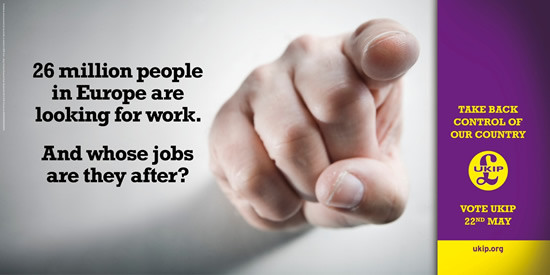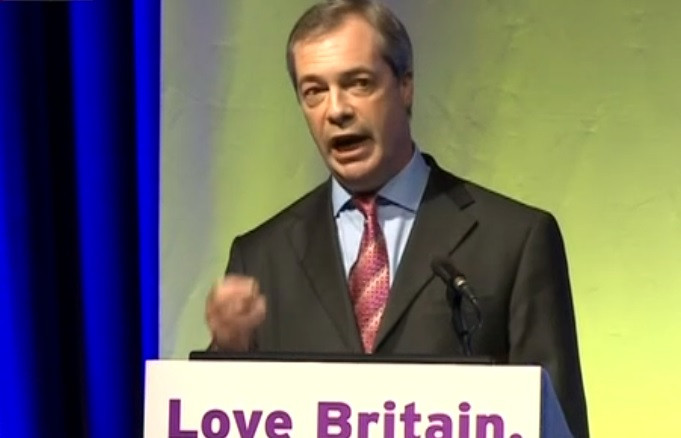Why Voters Think Ukip is Racist But will Vote for it Anyway

One of the most depressing polls in recent weeks must have been the weekend YouGov survey that suggested most people believed Ukip was racist or attracted racists but were still going to vote for them in the EU elections anyway.
It is worth underlining. The poll showed Ukip on 29%, pushing Labour into second place on 26%, the Tories on 23% and the Liberal Democrats on 10%.
Yet 27% of those surveyed thought Ukip was a party with "racist views" and "many racist members". A further 35% said that while they did not regard the party as racist, it did "attract some candidates or supporters with racist, extreme or odd views".
Add to this the claim by one of the party's prominent Asian youth members, Sanya-Jeet Thandi, that the party has "descended into a form of racist populism" and the picture is even more depressing.
"I understand that British politics in the 21st century has become a dirty game of populism.
It appears large numbers of voters are so alienated and despairing of the traditional "establishment" parties that they are prepared to deliver a protest vote to a party that is not only routinely branded racist but which they actually believe is racist or attracts racists.
The slogan "we know you're racist but we don't care" might fit the bill.
So what does that say about the British electorate? Is it the case that a large section of the population truly does not care whether the party they are about to vote for in despair at the others is a genuinely racist one, or that a significant number of those voters are racist themselves? Surely not the case?
Or is it the case that voters are preparing to swallow hard in order to send a strong message to the establishment parties, secure in the belief that Ukip will never be in a position to implement any of its more unpalatable views.
That is perhaps understandable but is equally depressing and, ultimately, a highly dangerous tactic. The voters might just get what they vote for.
And it highlights the massive failing by the tradition parties to counter Ukip and other far-right groups' messages. As Thandi said with awful accuracy: "I understand that British politics in the 21st century has become a dirty game of populism."

Whatever their intentions, the message a Ukip vote will send is far less about the rights and wrongs of the EU or economic policies or the glaring inadequacies of the political class.
Thanks to the way the campaign has developed, it will be about immigration and people's understandable fears about it because Ukip has done what extreme right-wing parties have done throughout history by wildly exaggerating those fears, particularly at times of economic austerity and uncertainty and telling them the establishment has abandoned them.
It is about singling out small, easily identifiable groups and laying the blame for voters' problems at their door, highlighting some genuine grievances but elevating them to an unrealistic significance
One of those facts came back to bite Ukip when figures showed that all the scare-mongering about the numbers of Romanians and Bulgarians who would come flooding into the UK when border controls came down was comprehensively demolished. Numbers for that period went down.
That is not so say there is not an issue with immigration. But it is not the issue of "people coming over here to steal our jobs" or alternatively "people coming over hear to claim our welfare".
It is a massive issue about unscrupulous employers – and the last Labour government has to take some blame for this – deliberately bringing in cheap labour to undercut local workers and sometimes even flout UK laws on low pay.
Yet time and again, while the main political parties agree the propaganda should be challenged and the facts laid before the voters, they fail to do so. We get vans telling people to "go home" instead.
It is symptomatic of the "dirty game of populism" which, along with the appearance of an out-of-touch political elite and the downright criminal behaviour of some politicians that have combined to boost Ukip.
© Copyright IBTimes 2025. All rights reserved.






















